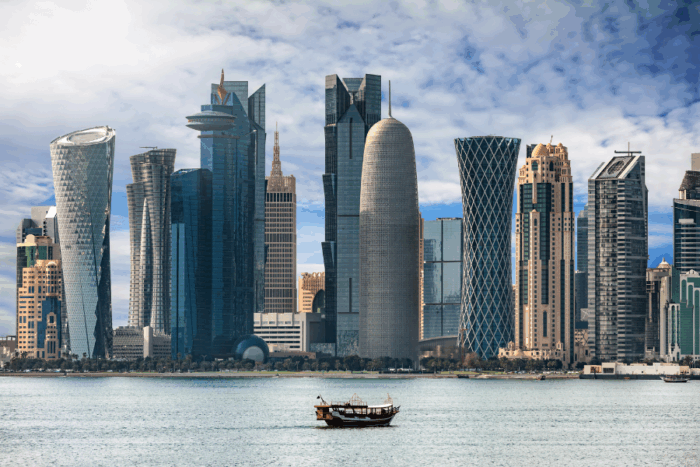Best Gulf country for company formation and business setup is a question every entrepreneur asks when considering expansion to the Middle East. The Gulf Cooperation Council (GCC) countries—United Arab Emirates, Saudi Arabia, Qatar, Kuwait, Oman, and Bahrain—each have unique business environments, incentives, and opportunities. Choosing the right one depends on industry, budget, and long-term growth goals.
This article explores the strengths and challenges of each Gulf country, compares them, and helps identify the best Gulf country for company formation and business setup.
Why the Gulf Region Attracts Businesses
The Gulf has become a global hub for entrepreneurs and investors. Its strategic location between Europe, Asia, and Africa makes it ideal for international trade. Key attractions include low or zero corporate taxes, strong infrastructure, access to global markets, and government initiatives promoting innovation and foreign investment.
These benefits make the region appealing not only to multinational corporations but also to small and medium-sized enterprises seeking new opportunities.
United Arab Emirates: The Most Popular Choice
The United Arab Emirates is often seen as the best Gulf country for company formation and business setup. It offers investor-friendly laws, world-class infrastructure, and a highly diverse economy.
Key advantages include more than 40 free zones with 100 percent foreign ownership, tax-free incentives in many zones, global connectivity through major airports and ports, and a strong banking sector. Dubai and Abu Dhabi are at the forefront of innovation and trade, while Sharjah and Ras Al Khaimah provide cost-effective alternatives for startups.
Challenges include higher setup costs in Dubai compared to other Gulf states and intense competition due to its popularity. Despite this, the UAE remains the leading destination for foreign businesses.

Saudi Arabia: A Market of Scale and Vision
Saudi Arabia, the largest economy in the Gulf, is undergoing rapid transformation through its Vision 2030 initiative. This program seeks to reduce reliance on oil and attract international investment.
Advantages include a large domestic market with high purchasing power, opportunities in energy, tourism, logistics, and technology, and ambitious mega-projects like NEOM that invite large-scale business participation.
Challenges include navigating evolving regulations and adapting to stricter cultural norms. For companies looking for scale and long-term projects, Saudi Arabia is a strong option.
Qatar: Wealth and Global Exposure
Qatar has one of the highest GDP per capita rates in the world and a rapidly developing economy. The country is focusing on infrastructure, finance, and technology.
Benefits include tax-friendly policies, free zones with foreign ownership, advanced infrastructure like Hamad International Airport, and a stable economy with strong government support. Qatar also gained global recognition through the FIFA World Cup 2022.
Challenges include a smaller market compared to the UAE and Saudi Arabia, and a startup ecosystem that is still growing. Qatar is best for industries such as energy, healthcare, finance, and sports.
Oman: Affordable and Emerging
Oman provides a cost-effective entry point for entrepreneurs who want to enter the Gulf. The government is focused on diversifying the economy and attracting foreign investment.
Advantages include lower setup costs, strategic ports like Duqm and Sohar, incentives for SMEs, and opportunities in logistics, tourism, and manufacturing.
Challenges include a smaller economy and slower regulatory reforms compared to neighbors. Oman is ideal for businesses looking for long-term growth at affordable costs.
Bahrain: The Gulf’s Financial Hub
Bahrain has long been a center for banking and financial services. It is also becoming a hub for fintech innovation.
Key advantages include low business setup costs, ease of registration, strong financial infrastructure, and access to the Saudi market via the King Fahd Causeway.
Challenges include a limited domestic market and fewer opportunities in industries beyond finance. Bahrain is best for companies in fintech, banking, and professional services.
Kuwait: Wealthy but Niche
Kuwait’s economy is still largely driven by oil, but it offers significant purchasing power and high consumer demand.
Advantages include a high-income population, opportunities in construction, energy, and retail, and a strategic location in the northern Gulf.
Challenges include bureaucratic hurdles and a less diversified economy. Kuwait is well-suited for businesses catering to luxury and high-income consumers.
Comparison of Gulf Countries
When comparing Gulf countries for company formation, entrepreneurs should consider:
- Market size – Saudi Arabia has the largest consumer base, while the UAE and Qatar offer strong global exposure.
- Business costs – Oman and Bahrain are more affordable, while Dubai is more expensive.
- Industry focus – UAE leads in trade and tech, Saudi Arabia in mega-projects, Bahrain in finance, Qatar in sports and energy, Oman in logistics, and Kuwait in oil-linked industries.
- Ease of setup – UAE ranks highest in ease of doing business, with streamlined regulations.
- Connectivity and lifestyle – UAE leads in global connectivity and expat lifestyle, followed by Qatar and Bahrain.
Which Country is Best?
For most entrepreneurs, the United Arab Emirates is the best Gulf country for company formation and business setup because of its open economy, connectivity, and diversity. Saudi Arabia is the top choice for large market access and long-term government-backed projects. Oman and Bahrain are attractive for startups and cost-sensitive businesses. Qatar offers wealth-driven opportunities in specific sectors, while Kuwait remains niche but lucrative for luxury-oriented ventures.
Conclusion
Choosing the best Gulf country for company formation and business setup depends on business goals, industry, and growth strategy. The Gulf region is no longer just about oil—it is about innovation, entrepreneurship, and global trade.
The UAE continues to stand out as the most complete package for international businesses, but every Gulf country has unique advantages. By carefully evaluating markets, costs, and opportunities, entrepreneurs can find the right destination to establish a strong presence in one of the world’s most dynamic regions.
Read More: Saudi Arabia’s Health Department Invests in AI for Patient Management



